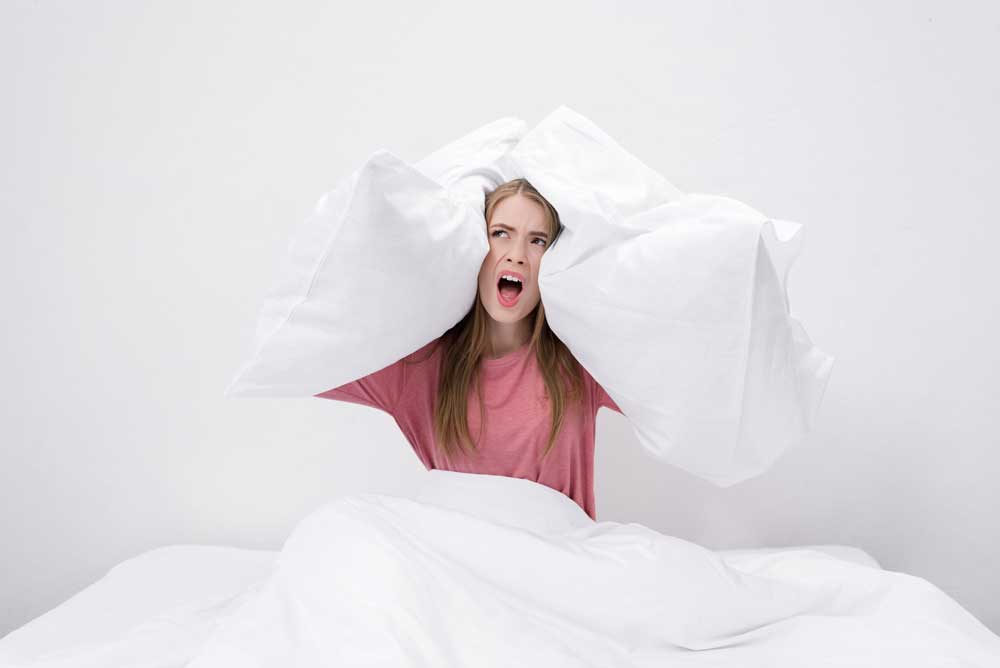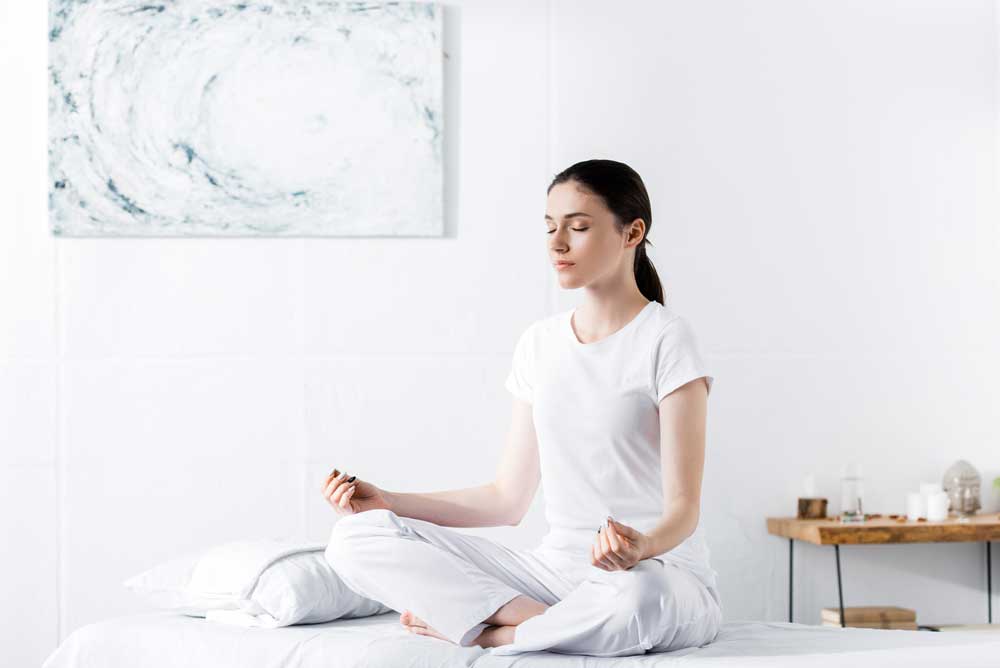
How to overcome distractions when you sleep you say? Let me guess – cars honking, work stress, or messy bedroom – it bothers you when all you want is a good night’s rest.
Your sleep quality is influenced by a lot of factors, e.g. noise, lights, electronics, depression, etc. These distractions proved to bring high levels of stress and disturbances that can make you lose sleep. Below are pointers to overcome distractions when you sleep.
Sleep deprivation vs. distractions
Distractions are the culprits to a good night’s sleep – smartphones, caffeine, lighting – you name it. But, don’t you know that sleep deprivation can also cause distractions? Research shows that sleep deprivation has a reciprocal relationship with distractedness. In short, sleep-deprived people have a hard time focusing and rebounding from distractions.

Effects of sleep loss
Sleep deprivation can have a major impact on a person’s cognitive ability which heightens distractions. For instance, the following risks and effects are stated below:
Reduced alertness
Sleep loss can reduce alertness or not be able to respond normally to the external environment a person finds him or herself in. Reduced alertness doesn’t have to mean leniency – it could also be hyperfocus. Hyperfocus happens when the individual is too engrossed with a lot of things, thus, become unaware of anything around them. It’s dangerous especially when one is in a risky environment or situation that can cause their life, e.g. driving.
Poor memory and shortened attention span
A research done by the Simon Fraser University, Studies show that poor memory links with the brain’s ability to ignore distraction. The said case found out that individuals who have short memory spans can’t easily suppress distractions. Irrelevant objects restrict access to processing memory. This also explains why messy bedrooms serve as distractions to sleep.
Reduced discipline and decision-making skills
Not having enough rest or decision-making skills heightens ignorance to distraction, which leads to sleep loss. For instance, not getting enough sleep increases the hormone ghrelin (stimulate the appetite) and leptin (signals hunger satisfaction). This leads to overeating and gaining weight that can further complicate your sleep situation (e.g. sleep apnea, sleeping hot, acid reflux, etc.).
Moodiness and irritability
Sleep deprivation causes moodiness and irritability. And, when you’re in a bad mood, every little thing bothers you – a snoring partner, a leak in the faucet, phone calls, etc. These distractions can wreck your sleep, which further affects your mood the next day. If you can see what we see, sleep loss, distractions, and irritability have a give-and-take relationship.
Anxiety, stress, and depression
Sleep loss and distractions can cause anxiety, stress, and depression. These negative emotions will induce sleep deprivation at night as you toss and turn filled with bumbled thoughts ruining your good night’s rest. As you struggle with these emotions, your senses are intensified. Everything – sounds, visuals, feels – may distract you to oblivion, thus, disturbing you all through the night.

How to overcome distractions when you sleep?
Research shows that minor disturbances can have huge consequences on sleep deprivation. So, how to overcome distractions when you sleep? Here are tips to get that good night’s rest.
Do regular meditation
Meditation and breathing exercises help calm the mind. It’s one of the best defenses against distractions and a powerful tool to help you get to sleep. Some benefits of meditation are:
- Brings clarity of the mind
- Instills peace and calmness
- Improves memory
- Brings awareness, mindfulness, and discipline
- Eases the physical, emotional, and mental stress
What’s more, it’s a powerful method to induce a good night’s sleep. Also, did you know meditation can help you lose weight?
Change the bedroom environment
What if your bedroom is the culprit of your nightly sleep deprivation? Imagine this scenario: old socks and clothes on the floor, unorganized desk, bad lighting, overused TV and desktop, etc. Generally, this setup can disturb your sleep. Here’s how to change your bedroom environment to overcome distractions when you sleep:
- Clean and organize your bedroom
- Recycle, re-use, or rid of things you don’t need
- Place items on their right “home”
- De-clutter your desk
- Let the light in during mornings and use blackout curtains if you want to sleep
- Use essential oils for aromatherapy when resting
- Minimize TV use in the bedroom or avoid it. Place your desktop away from the bed. And, stop using mobile devices 30 minutes before bedtime
- Use a background sound (white noise) to filter unnecessary noise
- Change your mattress, pillows, sheets, or linen
- Let the cool air in to induce sleep
Throw in a little effort to remove distractions from the bedroom!
Get easy with medications and substances
Substances, especially with caffeine, can induce distraction which affects the quality of sleep. While caffeine is everyone’s favorite stimulant, too much of it can bother you and heighten your senses. These senses serve as distractions and disturbances when you sleep.
Also, avoid liquor, cigarettes, and other substances that block your brain receptors that build up our sleep. You might want to talk to your doctor if you have medicines that ruin your good night’s rest.
Eat or drink grubs and liquids that make you calm
Certain foods make you feel jittery and distracted at night, e.g. caffeine-based foods, alcohol, etc. Change your diet and make way to a rich-mix food that gives you better sleep. For instance, bananas are rich in potassium that shows a calming effect on you, because it awakens happy hormones in your body. Chamomile tea is a drink that can take away your stress due to its relaxing properties.
Other foods to eat before bed are:
- Almonds
- Walnuts
- Rich fatty fish
- Sweet potato
- Pistachios
- Turkey
- Dark chocolate
Seek professional advice with underlying illnesses
Some people are distracted with a disease, pain, or underlying condition that prevents them to sleep. For instance, a person with ADHD often experiences periodic limb movement disorder (PLMD) or restless legs syndrome (RLS) which disturbs them as much as every 45 minutes in bed. People with chronic mental illness often have racing thoughts that prevent them to calm down and take a good night’s rest. When this happens, always seek professional help.



